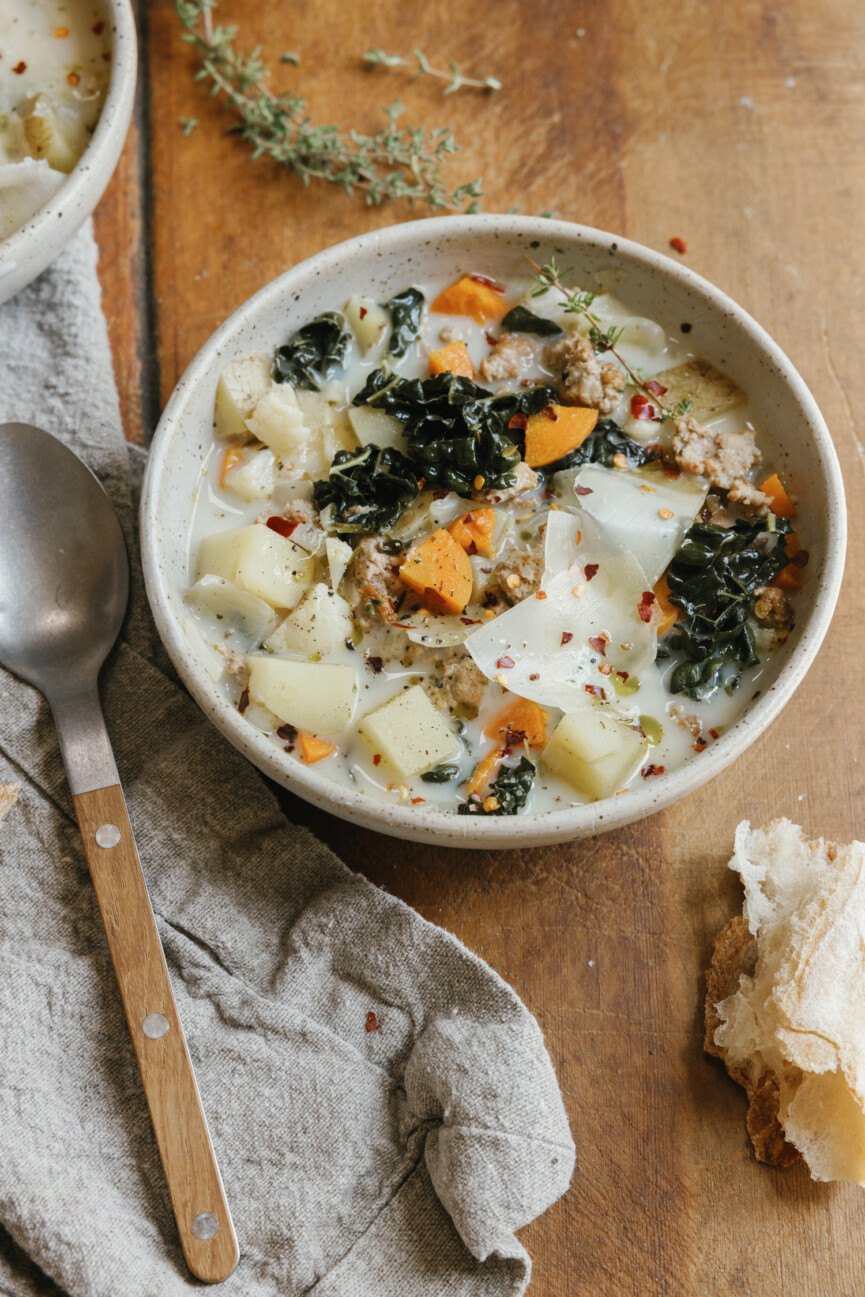Move over, detox myths. A resilient liver doesn’t require drastic measures. We’re looking at you, juice cleanses and harsh supplements. Rather, basic, mindful habits can make all the difference. With the spotlight on—you guessed it—liver health, we’re sharing no-nonsense, straightforward strategies to empower this vital organ. It’s time to demystify the art of how to keep your liver healthy (an investment that pays dividends!). This season, give your body the gift that keeps on giving: a well-nurtured liver, minus the detox fads.

Understanding Your Liver’s Role
Before we explore realistic ways to care of your liver, what is the liver’s primary role? And how does it contribute to overall well-being? In many ways, long-term vitality starts with an optimal liver. Without discrediting your brain or heart, the liver is central to everything from immune strength and digestive health to hormone balance and more. Beyond its role in detoxification, this influential organ supports countless physiological processes.

How does your liver impact the rest of your body?
The liver’s impact on the rest of the body is extensive. A true powerhouse, the liver processes nutrients, filters toxins, and regulates numerous bodily functions. Hello, homeostasis. By appreciating its significance, you’ll be motivated to make choices that promote—rather than compromise—its well-being.
Metabolism and nutrient processing:
- Regulating the storage and release of glucose as needed for energy, the liver is a major player in metabolic health.
- It processes and stores essential nutrients, including vitamins and minerals.
- It helps regulate cholesterol levels and triglycerides.
Detoxification:
- The liver plays a crucial role in detoxifying the blood by metabolizing and neutralizing toxins, drugs, and other harmful substances.
- It converts toxins into water-soluble compounds that can be excreted through urine or bile.
Digestion and nutrient absorption:
- Bile—produced by the liver—is essential for the digestion and absorption of fats in the small intestine.
- In other words, the liver helps us break down and absorb healthy fats.
Blood clotting:
- The liver produces proteins involved in blood clotting. This is important because these proteins can affect the blood’s ability to clot properly, leading to bleeding disorders.
Immune system support:
- Certain cells in the liver help filter and remove bacteria (and other pathogens) from the blood.
- The liver is involved in immune responses, producing proteins that assist in fighting infections.
Vitamins and mineral storage:
- The liver stores essential vitamins (such as A, D, E, and K) and minerals (including iron and copper), releasing them as needed.
Hormone regulation:
- The liver regulates hormone levels by metabolizing and clearing hormones from the bloodstream.
- It plays a role in converting androgens and estrogens, impacting reproductive health.
Blood sugar stability:
- The liver helps regulate blood sugar levels by storing or releasing glucose, ensuring a steady supply of energy.
- Speaking of, the liver can also provide energy during fasting or times of increased demand.

Alcohol and Your Liver: What to Know
It’s no secret that alcohol and your liver are partners in crime. Unfortunately, chronic—and excessive—alcohol consumption can lead to various liver disorders (fatty liver disease, alcoholic hepatitis, etc.). In essence, these conditions are a result of the liver’s struggle to break down and eliminate toxins. To maintain a healthy liver, moderation is important. Think: less than five ounces of wine, daily. Even better, consider non-alc alternatives.
Keep in mind that individual tolerance varies. Some people may be more susceptible to alcohol-related liver problems even with moderate consumption. Those with pre-existing liver conditions or other health concerns should consult with a healthcare professional regarding their alcohol intake.

How to Keep Your Liver Healthy
Ultimately, taking care of your liver involves a holistic approach. By incorporating these practical steps into your routine, you can support a healthier liver without resorting to extreme detoxes or cleansing methods.
- Hydration matters. Start your liver care routine with a simple yet impactful step: staying well-hydrated. Water aids in eliminating toxins, supporting your liver’s natural detoxification process. Consider incorporating herbal teas, such as dandelion or green tea, known for their liver-friendly properties.
- Embrace a colorful diet. Fuel your body with a rainbow of fruits and veggies. Particularly, those rich in antioxidants. These antioxidants help combat oxidative stress and inflammation, supporting the liver in its daily tasks. This vegan chopped salad fits the bill!
- Healthy fats for liver love. Avocados, nuts, seeds, and olive oil contain omega-3 fatty acids, which are beneficial for liver function. These fats support cell structure and promote a healthy inflammatory response.
- Moderate your protein intake. Protein is essential for overall health, but excessive consumption can strain the liver. Opt for lean protein sources (poultry, fish, and plant-based proteins, like beans and lentils). This helps maintain a healthy balance without burdening your liver with excessive processing.
- Mindful alcohol consumption. As mentioned, limiting your alcohol intake is a key aspect of liver care. Practice moderation to minimize inflammation and organ damage.
- Regular exercise. Exercise helps manage body fat, reduces fatty deposits in the liver, and improves blood circulation. So, yes, physical activity is also a crucial component of liver health!
- Prioritize quality sleep. Did you know your liver performs essential functions during sleep, including detoxification and repair? Aim for 7-9 hours of quality sleep each night to support these processes.
- Turmeric and garlic powder. Incorporate liver-loving ingredients into your meals. Turmeric is anti-inflammatory and garlic contains allicin, which supports liver detoxification.

Gentle Liver Supplements
Rather than reach for trendy detox supplements—or restrict yourself to an unsatisfying juice regimen—consider these gentle herbs and vitamins for liver health.
Milk thistle. Known for its antioxidant and anti-inflammatory properties, milk thistle can support liver function. It may help protect liver cells and promote regeneration.
Turmeric. The active compound in turmeric (curcumin) can help reduce inflammation in the liver and support its detoxification processes.
Dandelion root. Dandelion root has been traditionally used to support liver and gallbladder health. It may help stimulate bile production and promote detoxification.
Artichoke extract. Along with dandelion root, artichoke has compounds that may support liver health by promoting bile production and flow. It also has antioxidant properties.
Alpha-Lipoic Acid (ALA). ALA is an antioxidant that is known to help protect liver cells from damage. It’s also involved in energy production within cells.
Vitamin E. A fat-soluble vitamin with antioxidant properties, vitamin E helps protect liver cells from oxidative stress.
B-Complex vitamins. B vitamins—particularly B6, B12, and folic acid—are important for liver function and supporting metabolic processes.
While these supplements are generally considered gentle, individual responses vary. Talk to your healthcare provider before starting any new supplement regimen, especially if you have pre-existing health conditions or are taking medications.

Sustainable Liver Care
To bring this full circle: the path to a healthy liver doesn’t involve drastic measures or trendy detox routines. Rather, it’s all about making smart dietary choices, staying active, and prioritizing rest. In turn, you can foster a supportive environment for your liver to thrive. Say hello to years of steadfast function and well-being.
